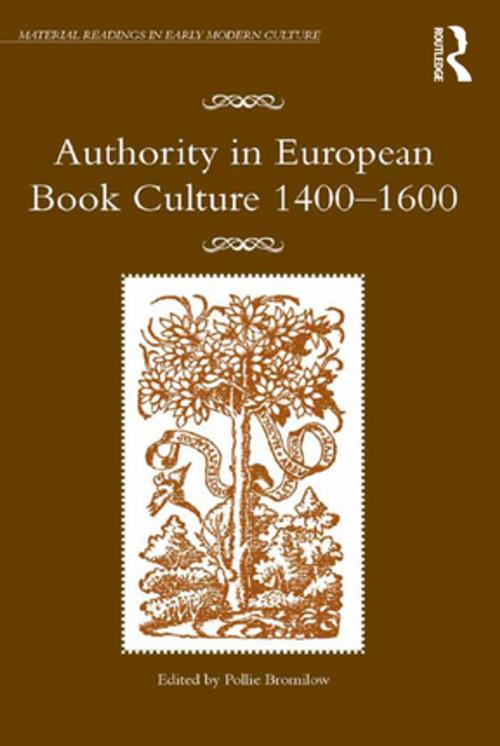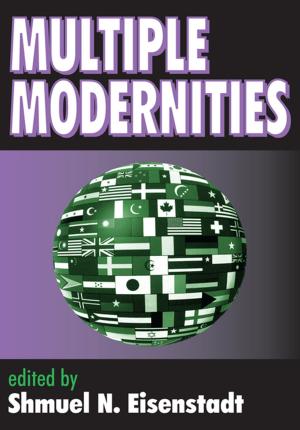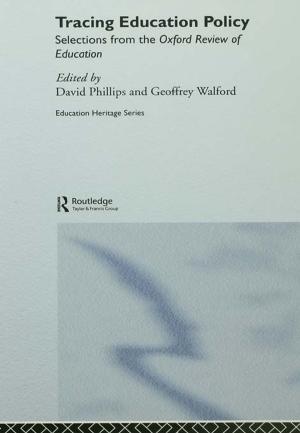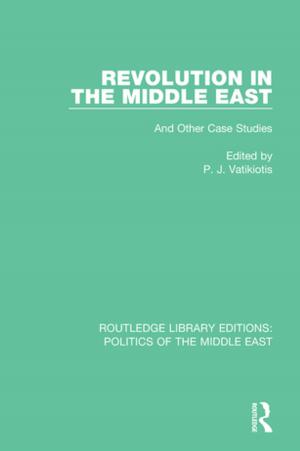Authority in European Book Culture 1400-1600
Fiction & Literature, Literary Theory & Criticism, European, Nonfiction, Reference & Language, Language Arts, Writing & Publishing, Publishing| Author: | Pollie Bromilow | ISBN: | 9781317176947 |
| Publisher: | Taylor and Francis | Publication: | April 8, 2016 |
| Imprint: | Routledge | Language: | English |
| Author: | Pollie Bromilow |
| ISBN: | 9781317176947 |
| Publisher: | Taylor and Francis |
| Publication: | April 8, 2016 |
| Imprint: | Routledge |
| Language: | English |
Through its many and varied manifestations, authority has frequently played a role in the communication process in both manuscript and print. This volume explores how authority, whether religious, intellectual, political or social, has enforced the circulation of certain texts and text versions, or acted to prevent the distribution of books, pamphlets and other print matter. It also analyzes how readers, writers and printers have sometimes rebelled against the constraints and restrictions of authority, publishing controversial works anonymously or counterfeiting authoritative texts; and how the written or printed word itself has sometimes been perceived to have a kind of authority, which might have had ramifications in social, political or religious spheres. Contributors look at the experience of various European cultures-English, French, German and Italian-to allow for comparative study of a number of questions pertinent to the period. Among the issues explored are local and regional factors influencing book production; the interplay between manuscript and print culture; the slippage between authorship and authority; and the role of civic and religious authority in cultural production. Deliberately conceived to foster interdisciplinary dialogue between the history of the book, and literary and cultural history, this volume takes a pan-European perspective to explore the ways in which authority infiltrates and is in turn propagated or undermined by book culture.
Through its many and varied manifestations, authority has frequently played a role in the communication process in both manuscript and print. This volume explores how authority, whether religious, intellectual, political or social, has enforced the circulation of certain texts and text versions, or acted to prevent the distribution of books, pamphlets and other print matter. It also analyzes how readers, writers and printers have sometimes rebelled against the constraints and restrictions of authority, publishing controversial works anonymously or counterfeiting authoritative texts; and how the written or printed word itself has sometimes been perceived to have a kind of authority, which might have had ramifications in social, political or religious spheres. Contributors look at the experience of various European cultures-English, French, German and Italian-to allow for comparative study of a number of questions pertinent to the period. Among the issues explored are local and regional factors influencing book production; the interplay between manuscript and print culture; the slippage between authorship and authority; and the role of civic and religious authority in cultural production. Deliberately conceived to foster interdisciplinary dialogue between the history of the book, and literary and cultural history, this volume takes a pan-European perspective to explore the ways in which authority infiltrates and is in turn propagated or undermined by book culture.















